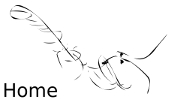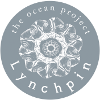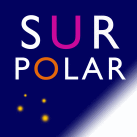Living Data
2018 Impacts:
Inclusion
Introduction/ Archives 2012 2013 2014 2015 2016 2017 2018 2019
Impacts/ Index

Lens on Health:Indigenous and Western Views
The basic premise of the Lens on Health project is that humans and environments are interconnected and that because world views reflect diverse experiences and beliefs, we must integrate (not separate) our ways of knowing, being and doing, to ensure the diversity in communities and environments
that is necessary for sustaining life - physical, biological, emotional.
While preparing the event I talked with UTS scientist Ellery Johnsonwho said, "scientists expect outcomes", and he suggested that the primary outcome could be that everyone comes away feeling "welcomed, introduced and engaged". This made me realise the importance of documenting (with permissions) any evidence of that feeling, for the purpose of encouraging more interactions between us. I was wary, though, of making people feel observed for some kind of assessment. I was also wary of contriving a picture that wasn't true. With these thoughts in mind I entrusted photojournalist Sebastian Reategui and sound recordist Jake Morcom to participate, as well as document. I was confident their different ways of telling a story would expand my own. I expected they would capture tones of voice and gestures that express responses not conveyed in words alone, and that may attract attention and stir action.
In Photos: Converging perspectives of Indigenous and Western health and wellbeing.
Photojournalism by Sebastian Reategui, 14th August 2018
Podcast by Jake Morcom, 2SER, 4th October 2018:
Think Health
Participants share their experience:
Great work Lisa
Site is rich and informative : much like the event
All fine with me
Peter
Email Message
From: Peter Fray
To: Lisa Roberts
Subject: Re: Lens on Health - follow-up
Date: Friday, 9 November 2018 at 8:28 AM
What I experienced was a great process of collaboration to create the workshop, where different skills were combined under the vision of a more holistic view of science and a storytelling approach to learning.
The workshop itself was a chance to see phytoplankton and hear stories that we may have only heard about, not experienced. Also give the impact we are having on the world around us, it was a very positive approach. We all had pieces of the story to add to build a bigger picture of how we fit in the world.
The Data Arena display was the first version and, as usual, these displays can have issues when in presentation, whilst they work without a hitch in rehearsal.
The Pedestrian figure will become more manageable, to provide the guide representing the user's path through the landscape and stories. While the stories are informative, it is the links we make that bring knowledge.
Thank you for all those who provided feedback and ideas for the way forward.
Email Message
From: Cat Kutay
To: Lisa Roberts
Subject: RE: Documenting Lens on Health
Date: Tue, 11 Sep 2018 23:23:06 +0000
Overview
I liked the immersive nature of the day; that is, experiencing Indigenous and Western views and ways of knowing. The Western approaches were rather objective, using microscopes to observe, measure and categorise, incredibly interesting to see such small things engaging with their own 'micro' environment - very much a reflection of the 'macro' scaled environment of humans, but only smaller. Whereas the Indigenous views and ways of knowing required participation, not as an observer, but also sharing of yourself and having you as the agent of your own learning through Sharing, Dadirri (deep listening) and Storytelling.
A thought I have been reflecting on since the event: while 'western science' is a way or method of distilling information, it may not however allow people to 'connect' with the information nor explore the value of the information to them. This is why I found the creative input of the event so enriching, completing 'monocle lenses' (using colour, pencil and texture) to capture what was observed (in microscopes) and experienced (through participation) and contribute to a larger lens using art; it connected our wonderfully 'messiness' and expressiveness as humans with science and ways of knowing. The data arena was incredibly interesting - I appreciated the medium and creativity that valued both Indigenous and Western sciences and their cultural perspectives. I thought it a great deal of work and an important pilot project. For me, it demonstrated how 'data' in partnership with a creative process provides a human dimension and hence connection to information that would otherwise be siloed in academic journals and wrapped in layers of disciplinary jargon. It was an enabling process to break though barriers - disciplinary, cultural and interpersonal.
In terms of the circle
My experience: I found the immersive and participatory nature of the event very different, both with respect to my cultural background and professional disciplinary lens, where science in a western context is often about objectivity and detailing happenings, often removing the person, the emotive dimension and subjectivity, from the telling.
So saying that, I realised I had expected a process of participation, a shared experience. However, the nature of the communication methods experienced meant that participants also had to share parts of themselves. This is what I found confronting simply because it was a process which to fully appreciate and participate with, I had to step outside my disciplinary and cultural 'shield', my 'comfort zone'.
Reflection: I also realised that 'sharing' and 'storytelling' require a culturally safe space to do this in, for everyone. It also requires people willing to participate and respect cultural diversity and the lived experiences of others. A mutual understanding by participants about the 'rules of the space' people are entering need to be explicit while still allowing honest communication. Personal outcome.
As time elapses since the event, and despite my initial thoughts, I realised that the event provided a medium for reflection, deep thinking - it was a start of a process of communication and further learning, not an end in itself.
And finally, the most important part in my opinion: I feel the 'event' commenced many weeks in advance of the 'event date', with Lisa busily conversing with everyone that was to be involved and/or invited to the event. She was, in many ways, 'art in motion', a human 'modem' of communication; distilling conversations to the essential nuggets of 'truths' for each person and transmitting this back across her network. Her work, certainly in my opinion, expands boundaries; a powerful device for actualising connections and promoting communication.
From: Sean Walsh
To: Lisa Roberts
Subject: RE: Impacts of lens on Health
Date: Wed, 22 Aug 2018 23:54:37 +0000
I loved elements of the day - the opening session, getting to see microscopic creatures and experience the data arena screening (even if interrupted). I didn't have a feeling of cohesion, they remained separate elements with unclear linkages to the opening session or title of the day (though maybe this was intended). If you did it again or a next iteration it would be interesting to think about whether these linkages could /should be made clearer.
Re the data arena screening. The enticing images layering, moving, the music, the topography were all wonderful. But the lack of a clear narrative is hard for a text based person like me to get meaning from the journey (though your introduction and the day gave it some context). I'm not convinced that you need the surround of the data arena - it would have looked good on a single screen and could be as immersive in a darkened space or even with multiple hanging screens. The figure didn't quite work for me as it was unclear why it needed to be pulled in real time, so that felt a bit gimmicky (but again it might have been the difficult circumstances that disrupted it). I do think that there is so much imaginative work that is in this exploration - I love the collaboration but especially your capacity to inspire and bring it together with such beauty. Your krill animation was so beautiful - seeing it on a small computer screen so doesn't do it justice but a big screen shows its wonder.
Email Message
From: Penny Ryan
To: Lisa Roberts
Subject: RE: Documenting Lens on Health
Date: Wed, 22 Aug 2018 07:53:01 +1000
As both participant and facilitator, my experience of Lens on Health was like no other Living Data event for National Science Week; past events have promoted Western science primarily through Western arts. Here a group of Indigenous and non-Indigenous scientists, artists and other scholars, share stories about the similar and different roles we play in sustaining health of peoples and environments.
Drawingsmade by people looking through microscopes reflect a range of approaches to what is seen, known and felt. For example, drawings by Sue Fenech are accurate representations that show a fascination with patterns in nature, qualities I have seen seen in her work as both a scientist and craft artist. Peter Fray's drawings reflect his dual roles as journalist and visual artist, through their detailed observations, expressionist flourish and wit.


















